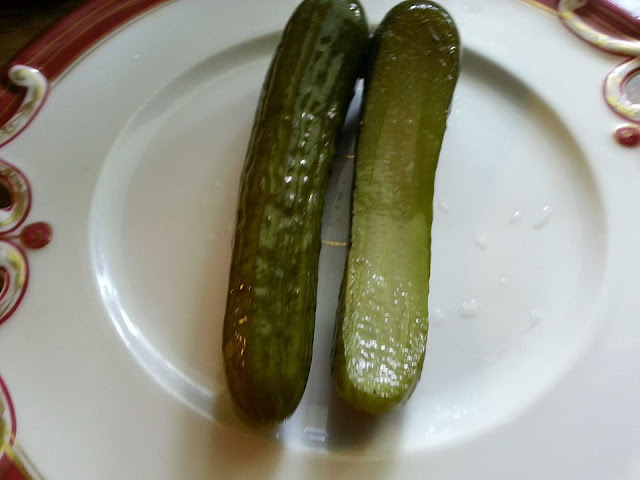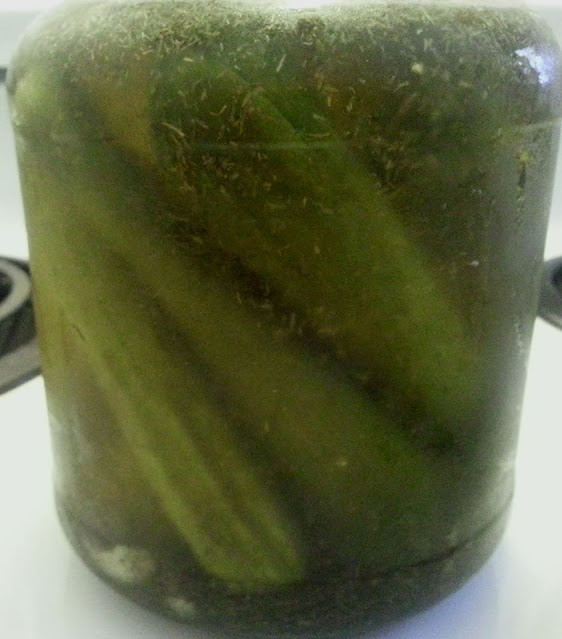Pickles have been around for more than 4000 years with mentions of them in the Tigris Valley in 2030 BC. Julius Caesar fed his troops pickles believing they gave them more stamina and strength. Cleopatra believed in them for her famed beauty. Shakespeare may have been the first to use the word “pickle” as a noun or a metaphor. Read here from NY food museum organisation’s website for more history http://www.nyfoodmuseum.org/_ptime.htm
.
Makes about 16 half pickles
.
2 3/4 pounds/1.25kg small pickling pickles (about 8)*
2 cloves crushed garlic
1 cup/250ml white vinegar
5 cups/1.25liters water
1/4 cup/59ml coarse sea salt
handful fresh dill or 3 tablespoons/45ml dried dill weed
2 cloves crushed garlic
1 cup/250ml white vinegar
5 cups/1.25liters water
1/4 cup/59ml coarse sea salt
handful fresh dill or 3 tablespoons/45ml dried dill weed
.
Cut the top tips off of the pickles (you can cut them in half or quarters if you want). Place them snuggly into a 6 cup/1.4 liter sterilised jar (we used a cleaned commercial pickle jar). You can buy 1 pint/500ml jars–you’ll need 2-3. Add vinegar, water and sea salt to a sauce pan. Bring to a boil and stir to dissolve the salt. Let cool for 5 minutes. Place dill and garlic into the jar with the cucumbers. Pour the vinegar/water mixture over the pickles making sure to cover them completely. Seal the jar tightly and store in a cool, dark space for two to three days. Place in the refrigerator for another day or two. Open and serve. The longer you keep the pickles in the brine the more flavourful they will be. You can put them directly in the fridge after sealing and wait for a minimum of 4 days.
*pickling cucumbers are about 4 inches/10cm long. You can use regular cucumbers sliced into rounds or cut in half lengthwise and widthwise. Make sure to wash the skins as they may have added wax.
.




0 Comments